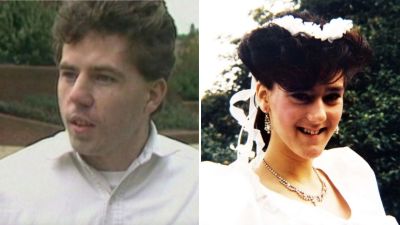Last minute delay in murderer Billy Dunlop's parole hearing a ‘disgrace’ says victim's mother

The family of a young mother from Teesside who was murdered 35 years ago have spoken of their anger after a rare public parole hearing for her killer was delayed at the last minute.
William 'Billy' Dunlop strangled 22-year-old Julie Hogg in Billingham, in 1989, then hid her mutilated body behind a bath panel where it lay undiscovered for more than two months.
Miss Hogg's mother, Ann Ming, campaigned for more than a decade to change the centuries-old Double Jeopardy Law to get Dunlop behind bars in 2006.
On Tuesday 25 June, the fifth public parole hearing of its kind was due to be held, but after new information was submitted by the Ministry of Justice, it was adjourned.
Ms Ming, who attended alongside Miss Hogg's son Kevin Hogg, told ITV Tyne Tees the delay was a "disgrace", as she vowed: "As long as I'm breathing I'll do my best to keep him in prison."
The bereaved mother travelled to the Royal Courts of Justice, in London, for the hearing with grandson Kevin.
Mr Hogg, who was three when his mother was killed, described the adjournment as "an outrage".
He continued: "The offence never changed, the injuries never changed, the outcome never changed.
"There is no new information."
The family are due to meet with a representative of the Parole Board on Wednesday.
What happened to Julie Hogg?
Married to husband Andrew, Miss Hogg was just 22 years old when she was killed after working her late shift at a local pizza parlour in November 1989.
Her disappearance in November 1989 was initially treated as a missing person inquiry until she was found by her mother 80 days later.
The body of Miss Hogg, who had a three-year-old son, Kevin, was discovered by her own mother decomposing behind a bath panel.
A case which made legal history
Dunlop twice stood trial for Miss Hogg's murder, but each time a jury failed to reach a verdict.
He was formally cleared but in 1999, while serving a sentence for a different offence, he confessed to the murder and admitted lying in court, boasting there was nothing anyone could do about it.
While he was jailed in 2000 for six years for perjury, he could not be tried for murder due to the Double Jeopardy Law, which prevented a person being tried for the same offence twice.
Ms Hogg's family campaigned for years to change the law and in 2006 legal history was made when Dunlop was tried again and received a life sentence with a tariff of 17 years less time spent on remand.
His tariff expired in September 2003.
A spokesperson from the Parole Board apologised for the delay on Tuesday, adding: "We know that people have made time to attend, and that some have travelled to the hearing, and we are sorry that they have not been able to see the hearing today.
“We realise that this can be disappointing but we have an obligation to make sure that the hearing is fair for all parties.
"That means that the panel need to see all of the relevant information and the parties need to have enough time to be able to respond to it.
"The panel’s priority must be to ensure the relevant information is available, so that they can thoroughly review the potential risks and ensure public protection.
"Parole Board decisions are solely focused on what risk a prisoner could represent to the public if released and whether that risk is manageable in the community.
“The public hearing will be re-listed as soon as the additional information has been shared and considered, and we will let people know when it is once that has taken place."
In 2022, then justice secretary Brandon Lewis blocked a bid to move Dunlop, known as Billy, to an open prison in the interests of public protection despite a parole panel recommending the plan.
Parole reviews typically take place behind closed doors but legal reforms which came into force in 2022 now allow some to be heard in public, when requested, in a bid to remove the secrecy around the process.
Last year Caroline Corby, chairwoman of the Parole Board for England and Wales, ruled Dunlop’s parole hearing could be held in public partly due to the unique legal background to the case.
She also considered the victims’ request for a public hearing, saying: “The victims feel that they have been let down in the past by the criminal justice system and they believe that a public hearing would be beneficial to them.
“The victims wish to attend a public hearing rather than a private hearing.”
Want a quick and expert briefing on the biggest news stories? Listen to our latest podcasts to find out What You Need To Know...